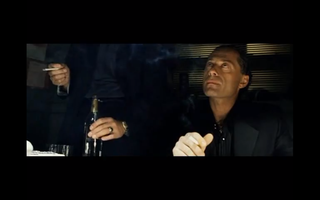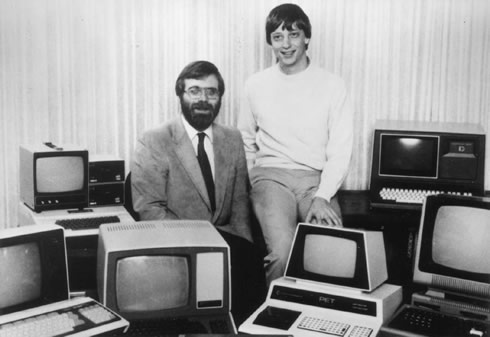I wrote this last week in the aftermath of the terrible happenings in Boston and dedicate it to the great people of Boston who I came to know and love when I lived up there (after something of a rough start).
-------
Having grown up in Brooklyn in the 70's and 80's, I'm no stranger to rough and tumble environments. My brother Chuck and I have a lot of stories to tell and we've seen and been through a lot of scrapes together. For us the New York of today and frankly, any other city we lived in or visited always seemed like a cake-walk compared to the Brooklyn of our youth. We're not careless or cocky by any means- but we consider ourselves pretty street-smart to put it mildly.
While in college we had one incident, however, in Boston, that made us blink a bit. We had a rugby game against MIT and made the road trip from Williams across the Mass Pike. It was our first time in that city. On the way there everyone was joking that we were going up against some eggheads and PhDs. Boy were we wrong. The MIT side was stacked with the baddest, toughest grad students- a bunch of ringers from New Zealand, Australia and South Africa. They were all grown men and were miles ahead of us in talent (and on the scoreboard). Sure enough a (now legendary) brawl erupted that was only broken up by the police that drove onto the field with paddy wagons. We had brought 3 "sides" as is said in Rugby- meaning we had our A, B, and C teams there as did they. There must of been 60 combatants on the field at the height of it all. In the end we had multiple people go to the hospital with broken ribs, black eyes, stiches as did they.
A few hours later we were all in their fraternity house singing songs around a bunch of kegs.
They were some tough mother-------.
Anyway, the years went by and those memories faded some. The feeling I'm sure I still had was that nothing could compare to our early days in Brooklyn.
That impression all changed for me, when years later I was running my first company and we decided to expand to Boston. It was a healthcare company and we were already in NY, NJ, Florida and now we were going north. I had my eyes opened again- real quick.
In my first few days there, a Boston trooper (known locally as a troopah), pulled me over. I was driving a Toyota Corolla that I had driven up straight from Florida and all my personal belongings were in boxes in the car. The Florida plates probably caught his eye. He was friggin' huge and took my license and registration and didn't even say hello. When he returned from his cruisah he bellowed this to me in thickest Boston accent you could imagine:
"Mr. Lernah.... yore a pedestrian"...
I didn't know what he meant and politely asked him what he meant. He then bellowed the following:
"Mr. Lernah, get the fuck out of youah cah right now- yore a PEDESTRIAN"....
I got the fuck out of my car real quick- now I understood. He then told me that my registration had "expiahed", gave me a ticket and returned to his squad car. Minutes later a tow truck pulled up and started to jack my vehicle as I furiously removed about 20 boxes full of all my wordly belongings onto the sidewalk. As they towed my vehicle to parts unknown- I walked up to the driver's side window of the officer's car and politely began to ask where I would be able to pick up the car at which point he drove away without saying a word. He had never removed his wrap-around sunglasses.
He was one tough mother------
A few nights later, I regret to say that I was involved in a very bad melee at a famous Boston establishment (name withheld for security reasons) wherein I broke my hand and lost a knuckle. I know multiple people were hospitalized. I am not proud of this- but there was really nothing I could have done different. The reason for the brawl? Interpretations of a rule around a game of darts some of you may know called Cricket.
They were some tough mother-------s.
Our facility up there was affiliated with Partners (MassGeneral, Brigham & Women's and Dana Farber Cancer Center). They were the ones who had asked us to open a center in Boston so we could help treat their patients. But when one of our doctors went on a local TV station to complain about how BlueCross BlueShield were not paying their bills, those administrators at MGH called me on the carpet and chewed me up one afternoon that I'll never forget. All the faux refinement they had exhibited during their courtship of us months before disappeared in a flash and they dressed me down with more F-bombs than I'd heard at the pubs. They told me they were going to be "all ovah youah asses" from then on and wouldn't hesitate to rip-up the "fucking agreement" we had.
They were worried about BCBS because BCBS had called them and actually threatened to stop paying MGH!
BCBS and MassGeneral were some tough mother-------s.
Then there was the time Medicare stopped reimbursiung us, period. Stopped cold turkey. This is after the Medical Director of Medicare of the State had sent us a signed letter BEFORE we opened the facility in Massachusetts telling us that Medicare would reimburse us for our services to patients. He renegged. We went at him hard. He didn't back down for the longest time.
He was tough mother------, but also was just an _______. (fill in the blank) :)
Oh and how about the war of the red tickets with the lovely metermaids of Boston? And that landlord that gouged the bejesus... ok, ok, that's enough!
A year or so went by. I dug-in. Winter lasted what seemed like 6 months up there. I walked to work along the Charles River and cursed my lot every morning. The wind just cut you into little pieces. Then a massive snowstorm hit in April I believe, I can't remember. I do remember barely being able to open the door to my basement apartment against the snown and thinking- "it's not worth going to the clinic- no one could possibly be there". But against my better judgment I trudged thought the tundra, finally arrived, unlocked the place and collapsed on a waiting room sofa, exhausted. After some minutes I heard someone calling my name. It was one of our oldest patients- she may have been 85 years old, white spindles of hair tucked back in a pony tail. I was blown away. She'd somehow come all the way up from a town way south of Boston- somewhere along the South Shore. I'll never forget the sight of her standing there in her little boots and heavy winter coat. She was so determined and earnest and wanted to get better. Nothing would get in her way.
Anyway- I couldn't imagine how she had made it to see us. Needless to say one of our team was able to come in and treat her. There was no way she was going home without being treated. I would have done anything for her.
She was one tough lady.
And then there was our office manager. God bless her- we're still in touch all these years later. Salt of the earth from Braintree- had been a patient of ours and then anchored that facility there in Boston for all the years we operated. Answered the phone, talked to everyone- knew their life stories, hosted-em when they came and went, stayed in touch with-em, did anything for 'em... just the best... never late, never sick, never down though she'd seen the roughest of times and had had some really tough luck through the years- just the best of the best- had your back through thick and thin.
She was one tough lady and I'd do anything for her or her family.
Yep, and that's sort of how it went. Four years up there.. got to know-em real well. Our patients, the therapists and docs, regular folks from all walks of life from Southie to Marblehead, the chess community, the Russian community and on and on... and over time- little by little, they took me in and we warmed to one another- with a little cussing and frowning, some punches thrown here and there, and finally some drinks and good times. When it was time for me to leave I didn't want to go.
I had developed this feeling for the place, something for this toughness and character I was seeing all around me. Over time my initial resentment just melted away somehow into deep respect.... and dare I say it- even affection... that grudging affection you develop for an opponent in a fight who gives and takes no quarter....
And then this damn thing last week. Good G-d how they responded to it! They were all over it in seconds- I heard the Chief of Police talking about it in awed tones. Regular Boston folk were running towards the explosions to help, applying tourniquets with their shirts, their jackets- their bare hands in some cases for goodness sake... and they didn't stop there.... from the people in the streets to the guardsmen and soldiers there, to the bus drivers who stayed to drive runners to safety, to the docs and nurses in the hospitals to the police and the EMT's, to the people opening up their homes to strangers, to the people using their camera phones and twitter- all the way down the line everyone was helping, and of course all the cops on the front lines shooting it out with the two brothers toe-to-toe taking on hand-grenades and hundreds of rounds... and all the way up to that moment when a guy was out having a cigarette and spotted someone "covered in blood crouching low in his boat".
My heart goes out to everyone up there, especially to those who've lost loved-ones and have had loved-ones maimed for life. I am in awe of how Bostonians banded together, helped each other and endured this and how relentless they were in hunting down these killers in their midst.
Boston- you are one tough mother-------, and you know I say that with great affection.














![Reblog this post [with Zemanta]](http://img.zemanta.com/reblog_e.png?x-id=39227201-051d-46aa-b614-b92cff685b5c)

![Reblog this post [with Zemanta]](http://img.zemanta.com/reblog_e.png?x-id=6c6beb76-b8ec-4e98-b4be-37534ab4585c)

![Reblog this post [with Zemanta]](http://img.zemanta.com/reblog_e.png?x-id=88dcb958-3446-44cc-8706-65f540dc5cdf)